May 7, 2012 |
BITE: My Journal
An Armenian Gift from Beirut
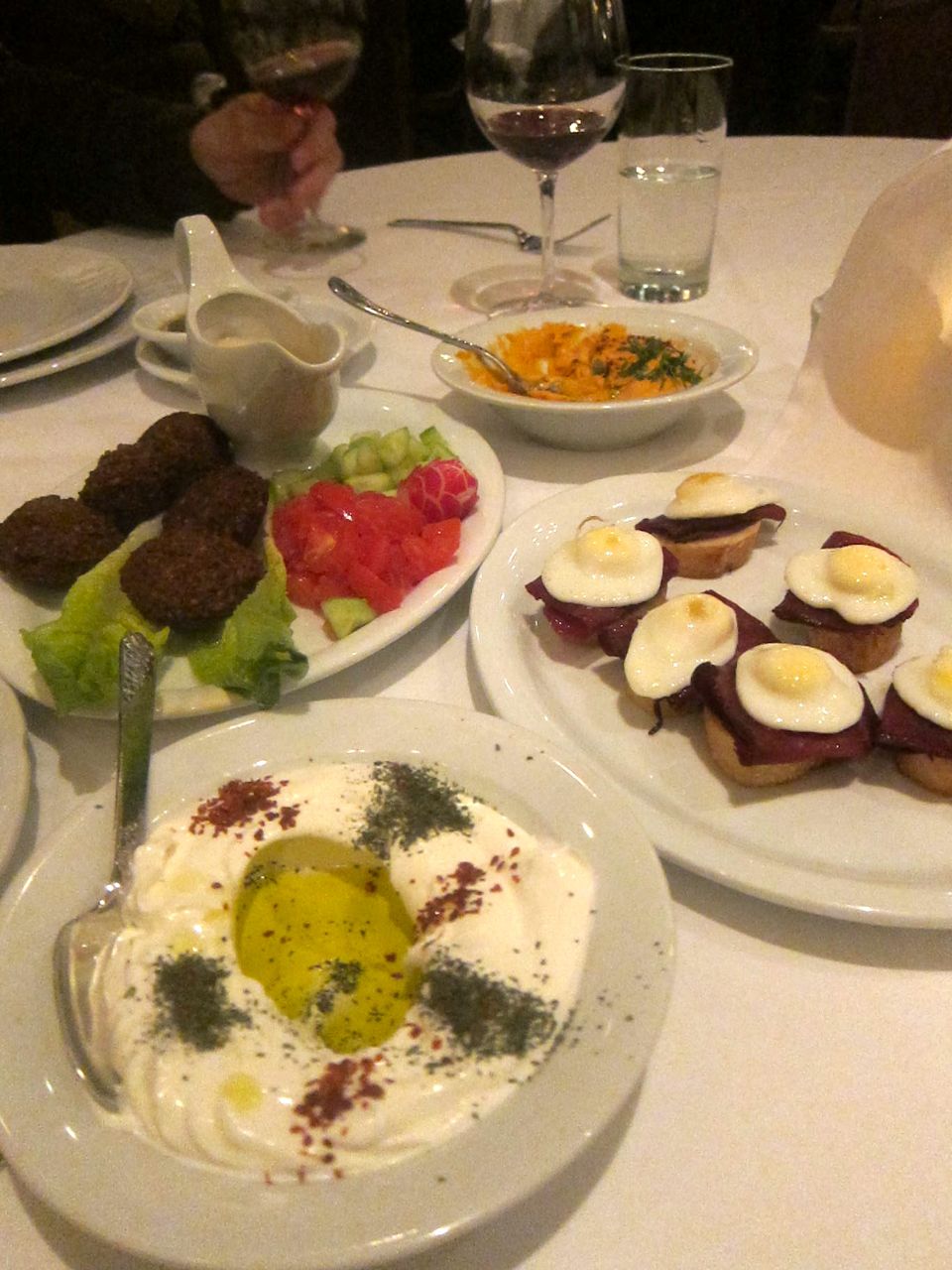
From top: Hummus Almayass, basterma with quail egg, labneh and falafel.
Almayass, the new Flatiron outpost of the popular Armenian restaurant in Beirut, was definitely in jet lag that first night. At the welcome stand, hostesses raced back and forth clearly disorganized, apologizing profusely for giving away our table. They leave us standing, admiring a vast stained glass curtain on coiled copper, till a grey-haired floor walker decides to seat the three of us on one side of a large six-top.
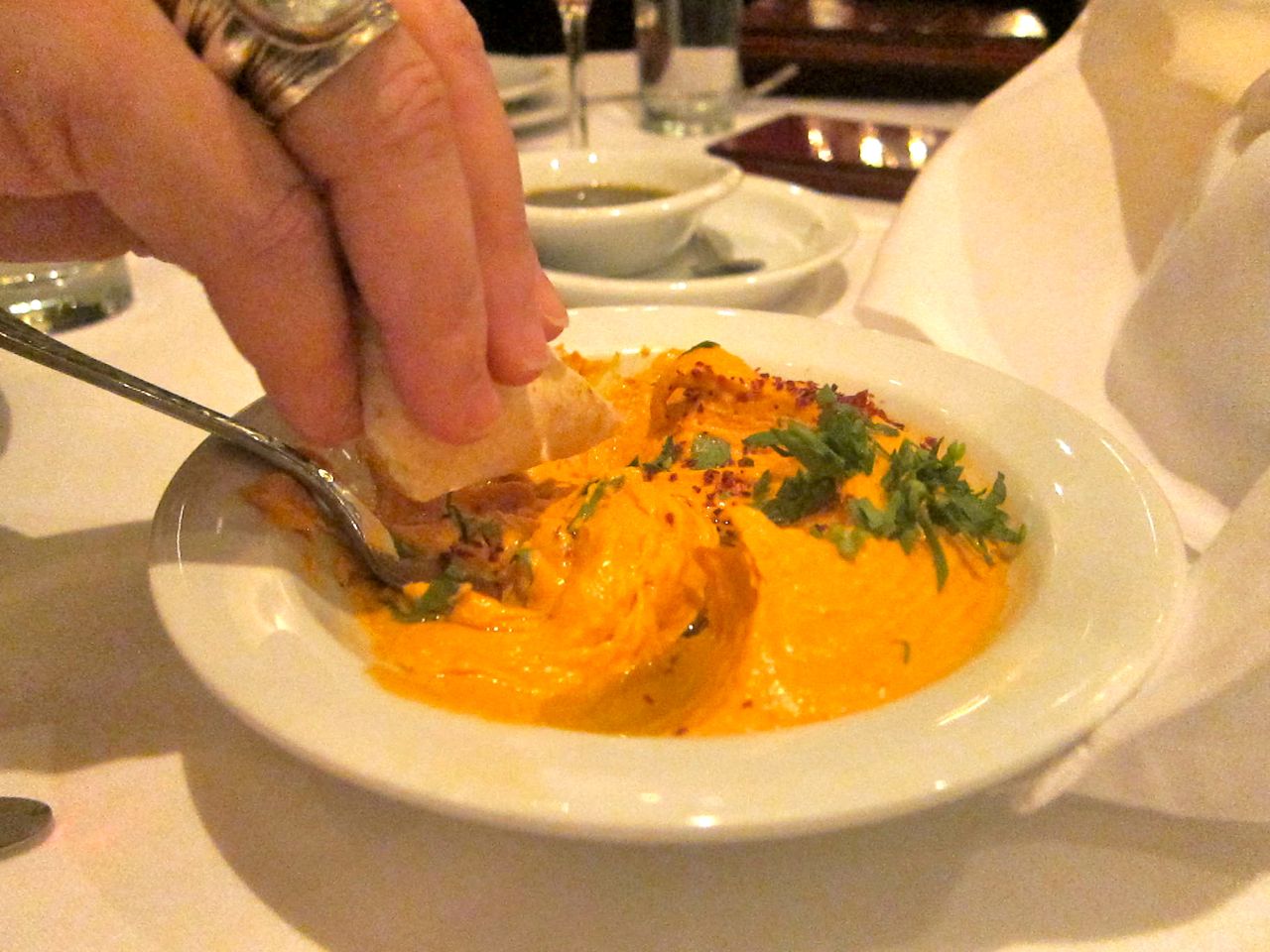
Rita Alexandrian’s secret spice mix enlivens this satiny hummus.
“At least we have room for all our mezzes,” I venture. It takes ridiculous time to get water and a waiter. So many intriguing mezze ($4 to $17), such temptation. (There’s also a $22 lunch.) We ask to be served in waves, cold mezze first, then hot. The kitchen drags. The vanishing waiter seemed confused whenever he comes close. Desperate, I tear off pieces of very thin pita from a napkin bunting and drag it through the spicy herbed oil. Thick with sesame seeds, it’s almost a salsa, but not quite.
Finally the small plates start arriving — torturously slow, yes — but shockingly good, layered with intense zaps of lemon, garlic and peppery olive oil. From hummus in five guises, we have chosen Almayass style, chickpea paste whipped smooth, sassy from hot pepper. Plump globes of stuffed eggplant are surprising, elegant, unlike any I can recall from Middle Eastern renditions I’ve loved in the past.
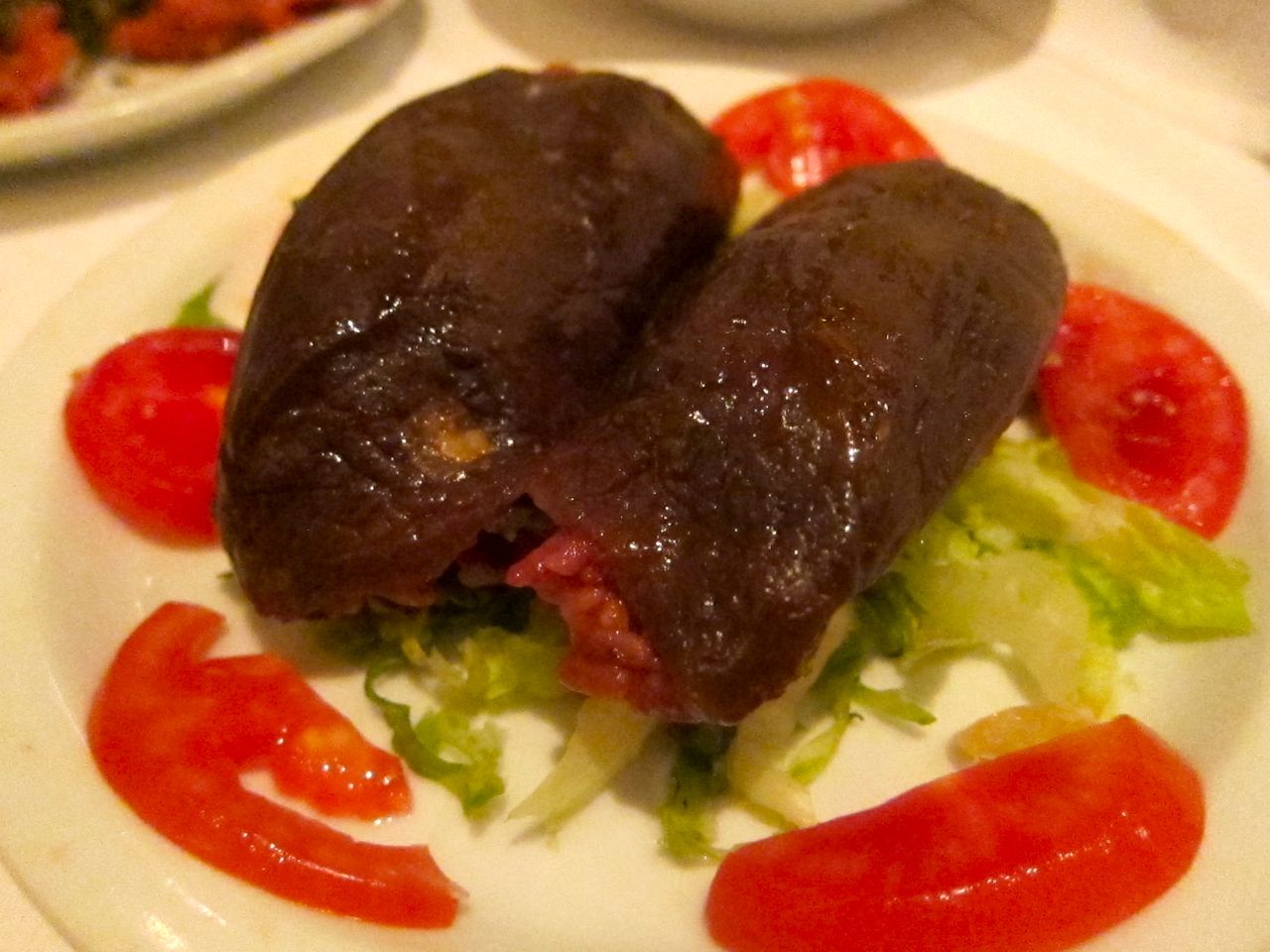
These small stuffed eggplants have an amazing elegance and flavor.
Basterma, Armenian pastrami, is a new discovery: six slices topped with fried quail egg in an $11 portion. Even simple organic homemade labneh — yogurt thickened through straining, gleaming chartreuse from swathing with olive oil — is something to hoard, to dab on just about anything.
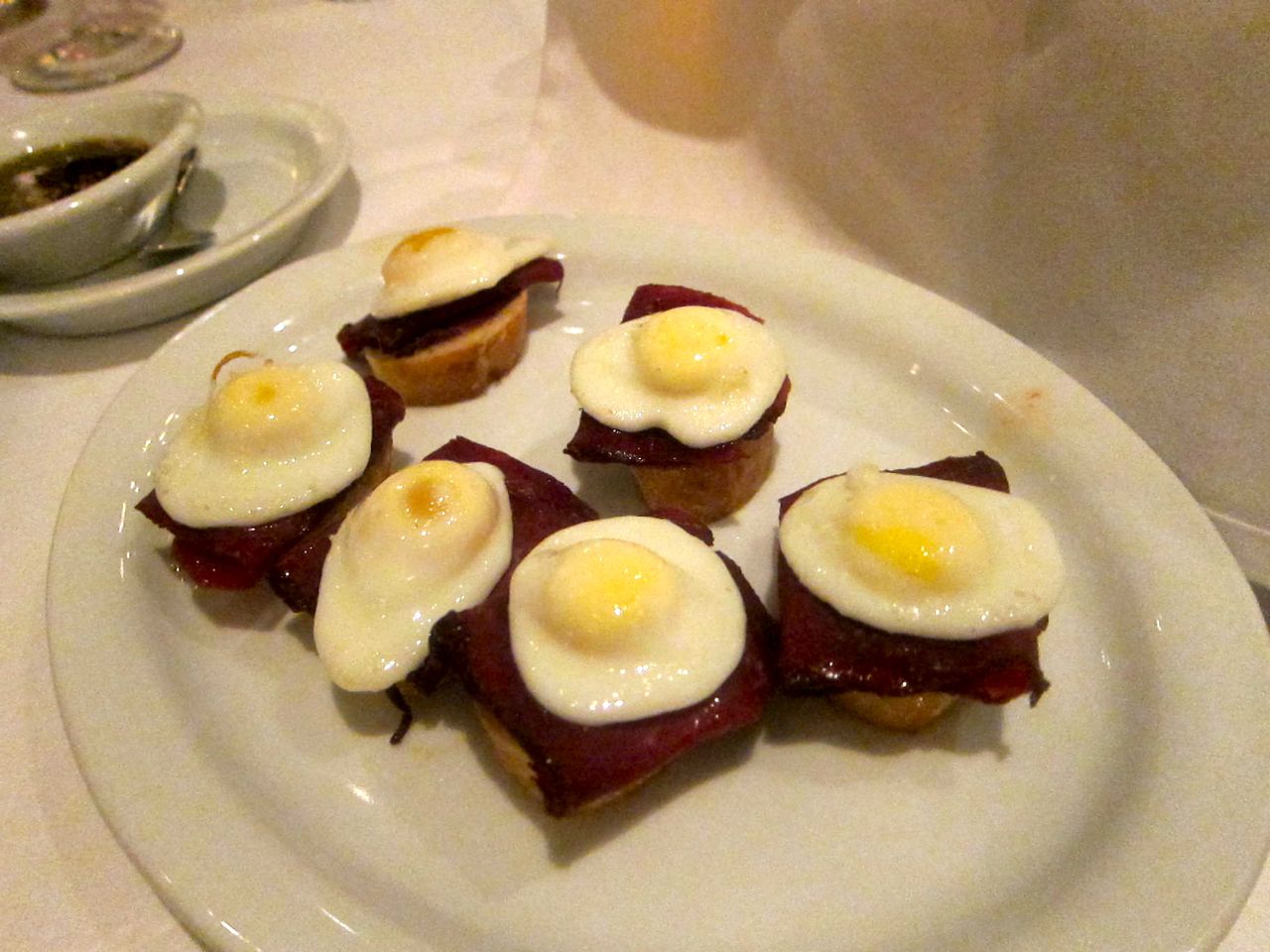
Bastrami on toast topped with a fried quail egg. Well, maybe the egg is a bit too done.
I remember the thrill of pasty lamb tartare pitched by street sellers on crowded food alleys in Istanbul, but nothing as sensuous as tonight’s Kibbe Naye. Here, it’s beef pounded with crushed wheat and olive oil, rich and sticky in my mouth. I pluck at it again and again, picking it up with shreds of bread.
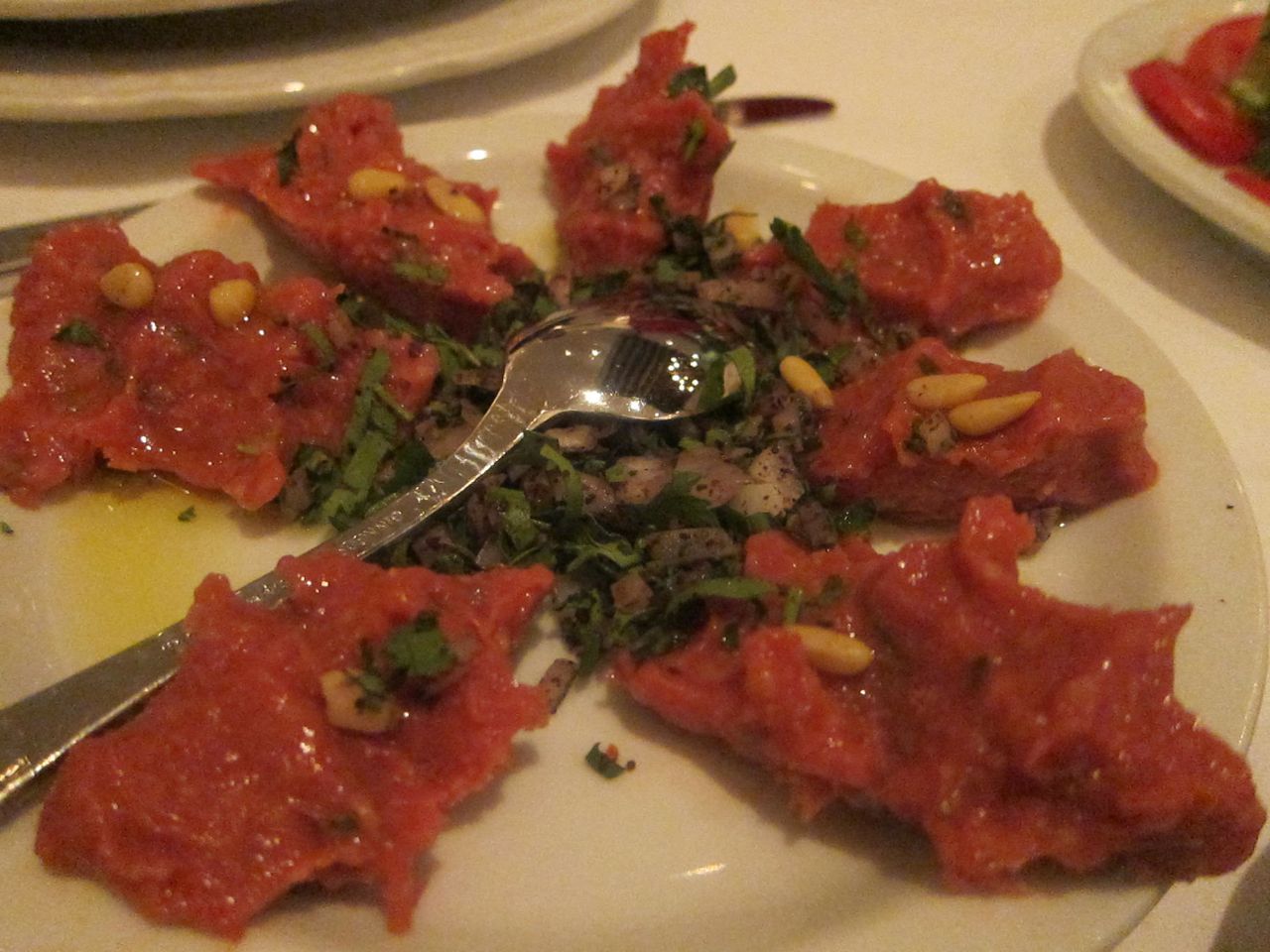
The stunningly silken texture of raw beef pounded with cracked wheat has us moaning.
But I think it is the sweetbreads arriving toward the end, just when I’ve eaten more than I think I can, that delivers the smartest knockout of flavor. The intense lemony tang is a shock. It hits the tongue like a lightening bolt, the taste and texture of animal organ emerging afterward to take a bow.
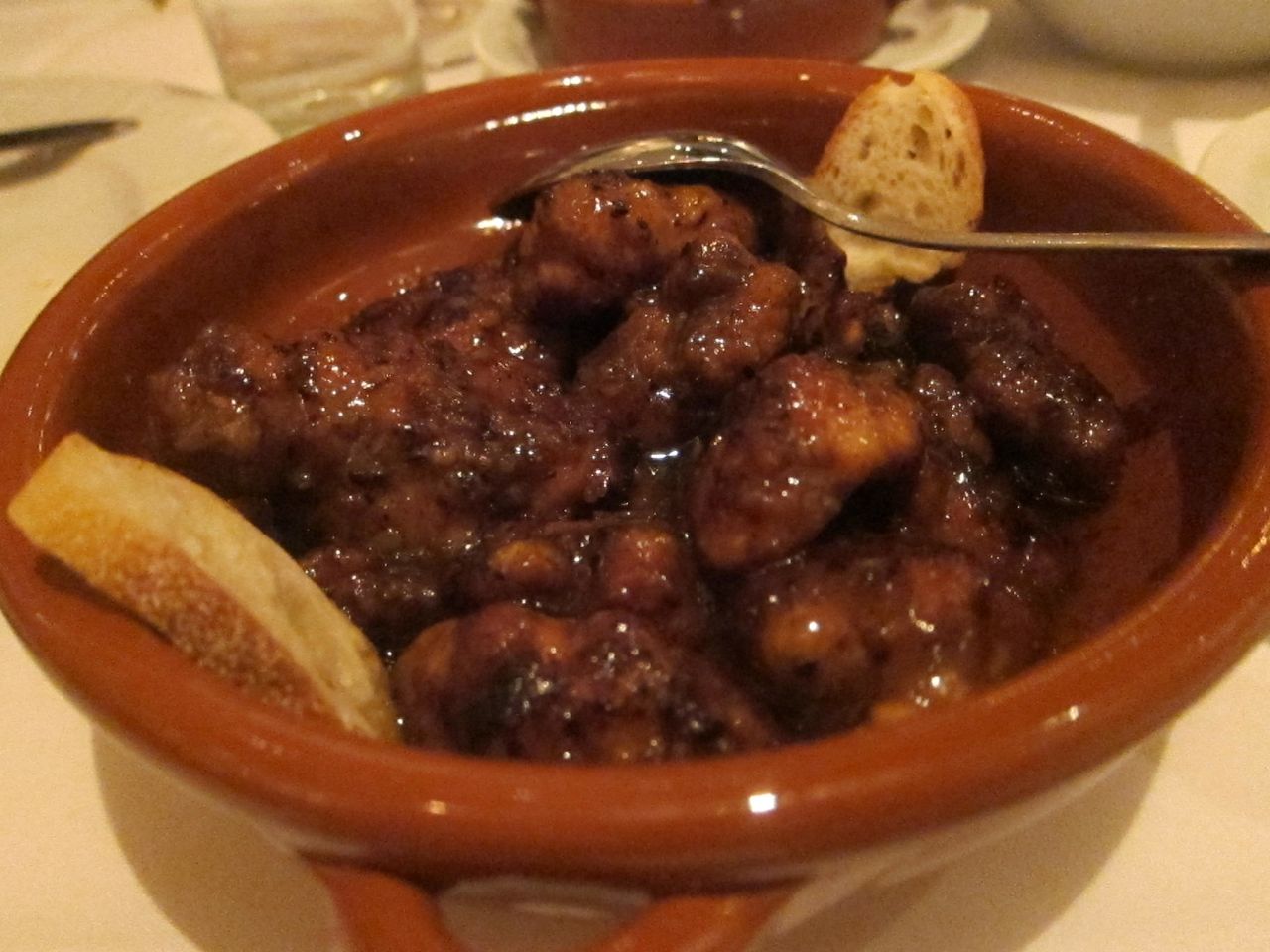
The intense tang of lemon enlivening sweetbreads is a delicious shock.
The only disappointment is the overcooked quail that arrives on a bare plate with its ankles modestly crossed. Not even a dose of lemon can save it. The three of us talk about ordering kebabs from a small list of entrees, but with so many sizeable mezze that we, especially me, cannot stop eating, it no longer seems prudent.
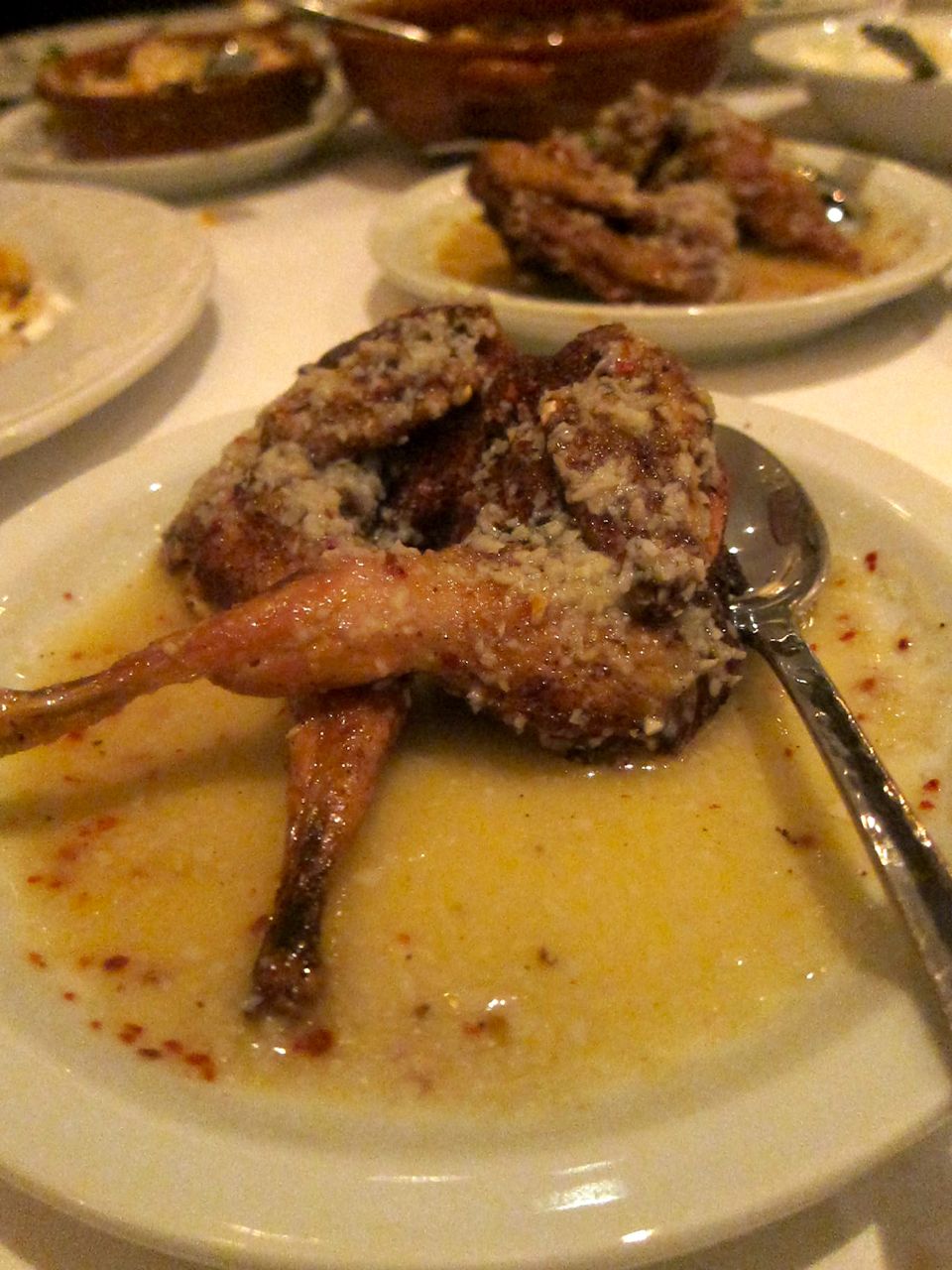
The only disappointment that first evening: Too cooked quail, tough and bland.
Still, I feel professional pressure to taste at least one dessert from the various warm puddings and pastry. My friend Rachel chooses Ashta el Saraya, because its caramelized pastry sounds the most like baklava. It is not even close to that honeyed, sometimes cloying, stickiness. Ashta in this case proves to be clotted cream pebbled with pistachio. Perfect for a sweet ending.
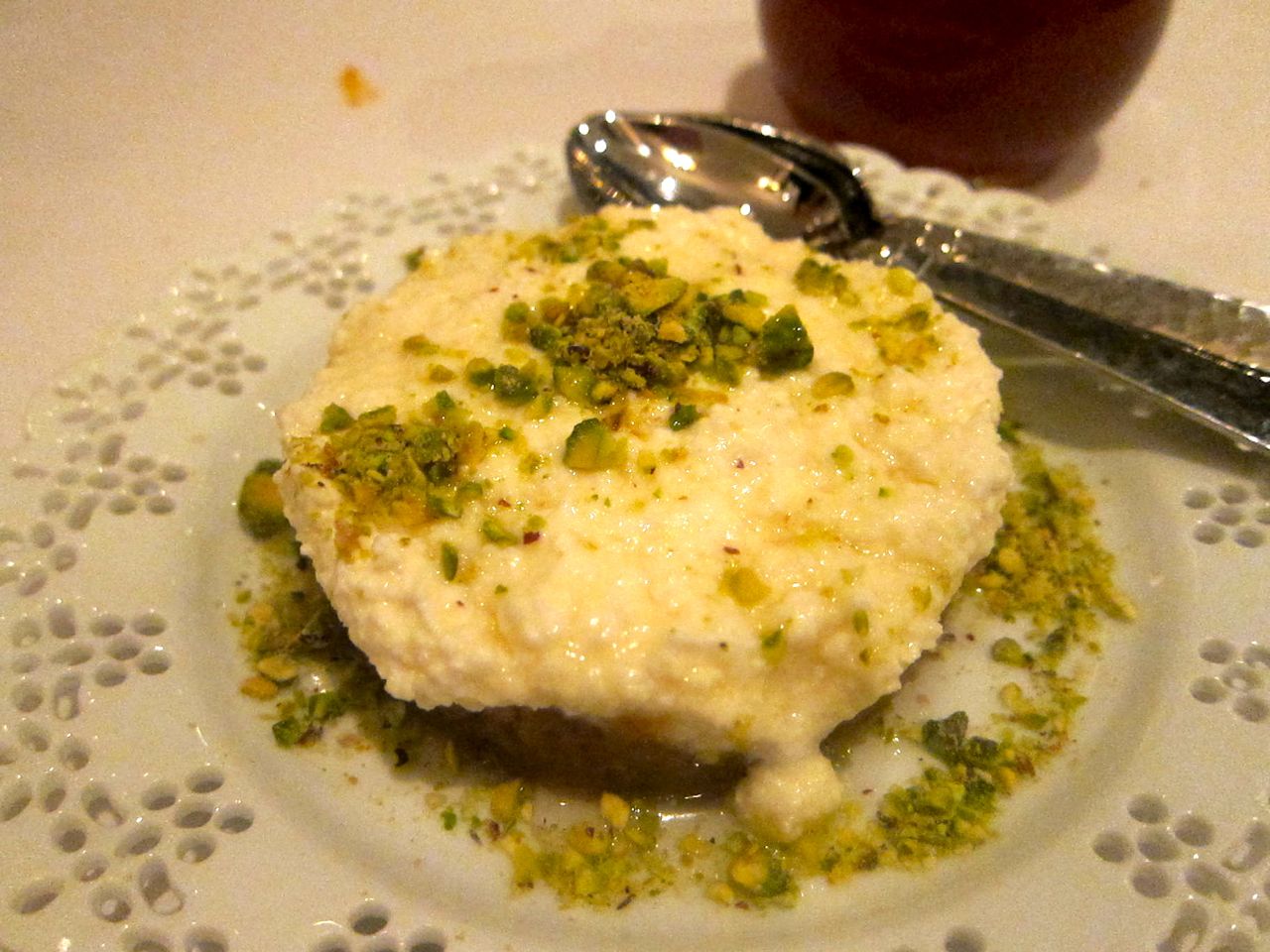
Ashta el Saraya: Clotted cream with pistachios on caramelized pastry.
I couldn’t wait to tell the world about this family venture of Rita Alexandrian, her son Varak and daughter Aliz. Almayass: “When the hanging leaves dance to the rhythm of delicate breeze,” the menu translates. I planned to warn readers about the strains of the kitchen, even with the matriarch expediting at the pass, and the spotty service.
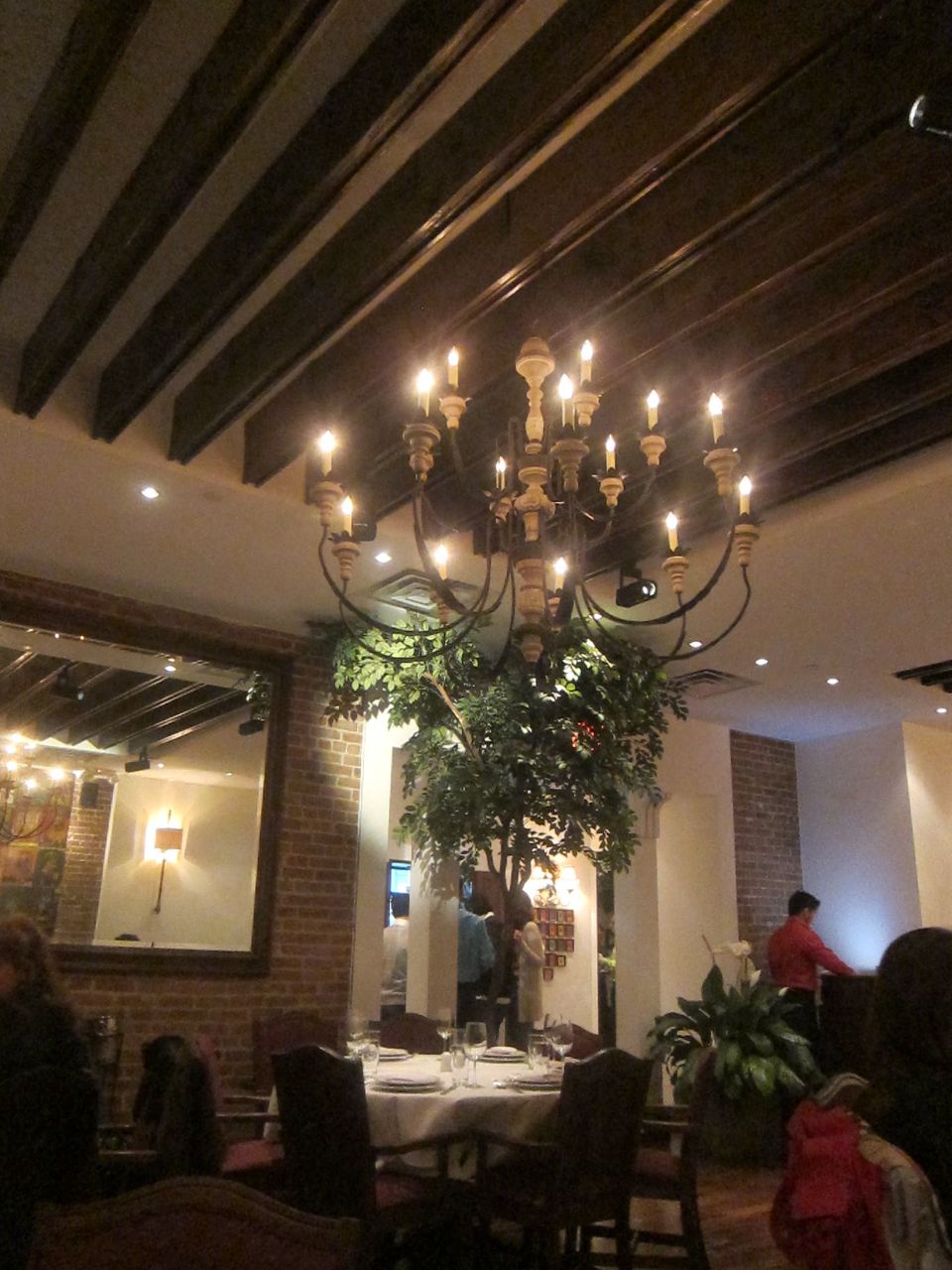
The giant chandelier illuminates unusual space between tables.
I felt the charm of the place, with its separate lounge and bar, whimsical Armenian folk art, small paintings arranged like a quilt, tall blue glass flowers on metal stems, and the massive chandelier made up for a certain measure of stress. And those mezze. As George Bernard Shaw is quoted on the bottom of the menu: “There is no sincerer love than the love of food.”
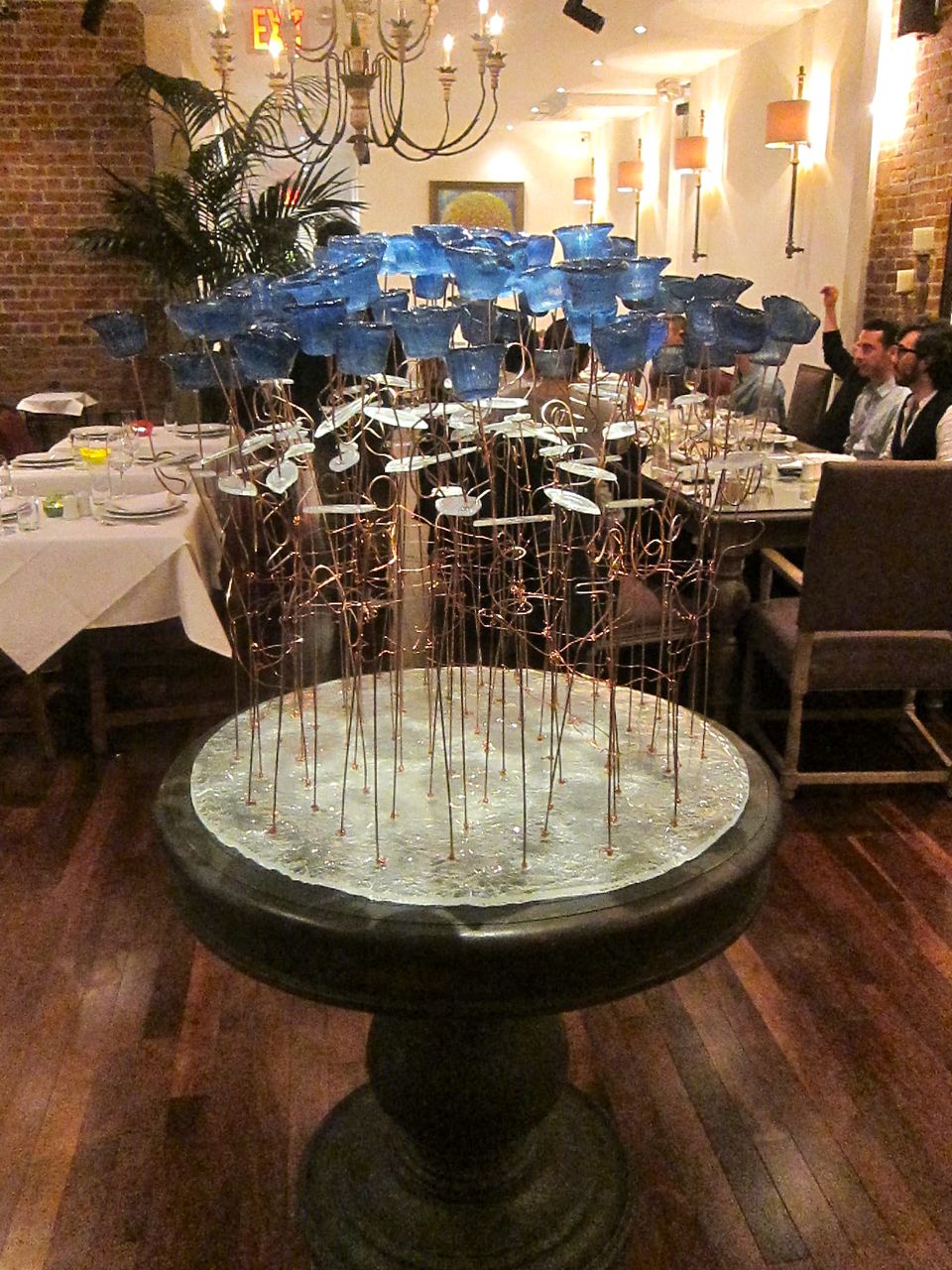
Among Armenian treasures are these blue glass flowers on wire stems.
Everything we hadn’t tasted now started to haunt me and three days later I am back with a friend, raving about this new discovery all the way downtown. The woman at the podium welcomes me back. A good sign. And the waiter comes twice to take the order. But I’m disbelieving — I have oversold the place. Alas, nothing new we’re trying is as brilliant as before.
Not to dismiss the suberog, a many-layered cheese pastry from the oven, or the peppery Armenian sausage cut into coins and sautéed to eat with cooling raw tomato, or the “Provençal” chicken wings (with a thick garlicky purée of cilantro). We are both taken with a porridge of crushed wheat, tomatoes and onion, parsley and mint, called Itch. All good enough, but simply not brilliant.
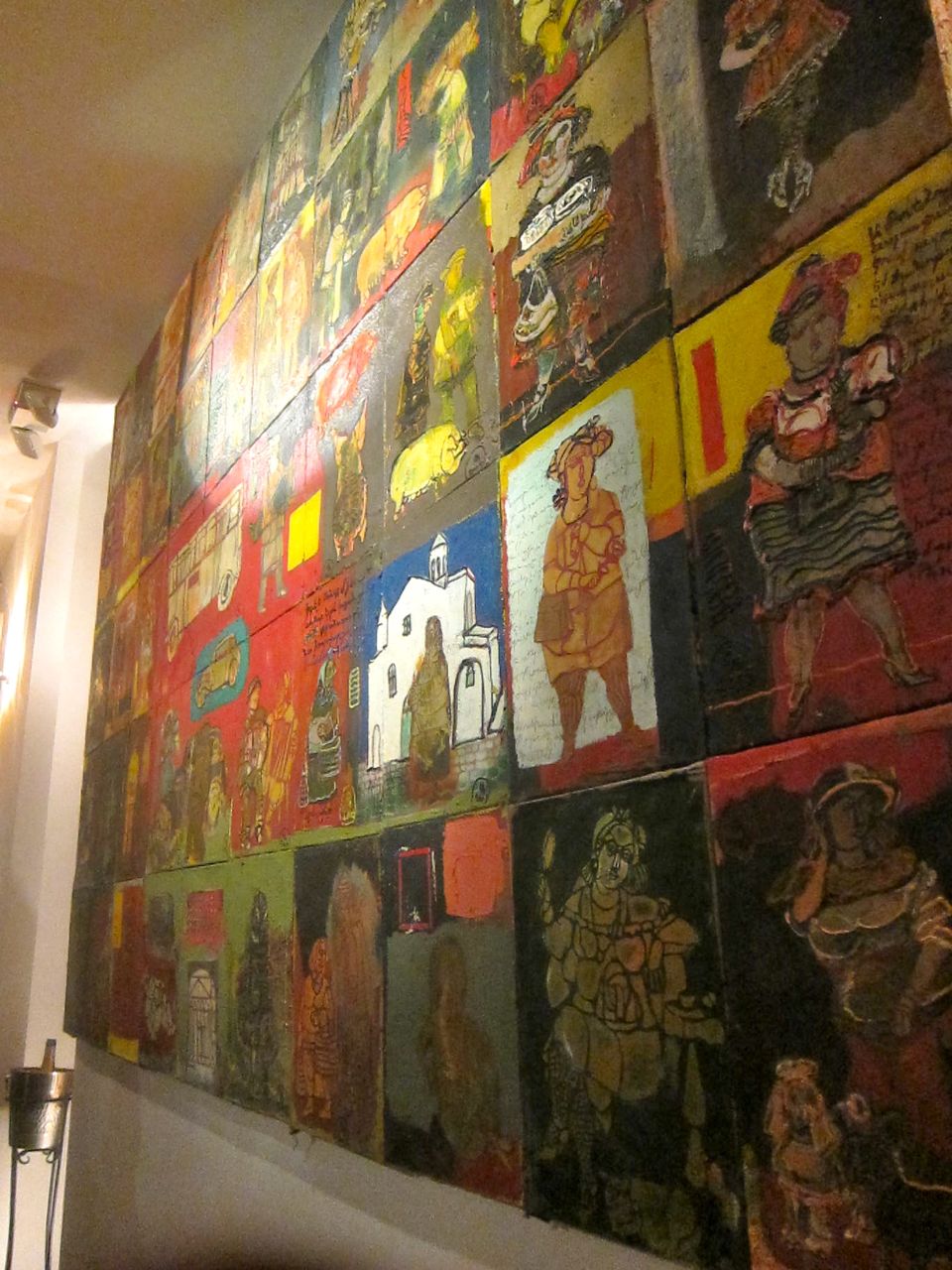
Folk art paintings form “quilts” one on the wall in the dining room, another in the lounge.
Sister Aliz herself delivers the stuffed grape leaves as I tell the waiter we must go. Just grape leaves. No better than most. I’m remembering the astonishing stuffed eggplant. Why aren’t the stuffed leaves uniquely special too? The charm of boot-shaped dumplings stuffed with beef (traditonal mantee crisped in the baking and smothered in labneh) escapes me. I have dabbed everything with the luscious thick yogurt hoping to recapture some magic. How to explain this mystery? I want to believe it was just an accident of ordering better one evening. Eventually I’ll go back. Perhaps for the $22 lunch.
24 East 21st Street between Park Avenue South and Broadway. 212 473 3100. Lunch Monday through Saturday noon to 3 pm. Dinner Monday through Wednesday 5 till 10:30 pm. Thursday through Saturday till 11:30. Closed Sunday..
Photos are by Gael Greene and may not be used without permission. All rights reserved